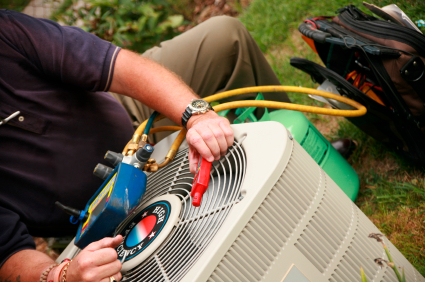
6 Contractor Warning Signs for Landlords
 At some point, every landlord need to hire a contractor, so it’s important to be able to spot contractor warning signs to help determine who the best candidate is. Whether it’s a simple update or a whole remodel, you depend on outside service experts to help keep your rentals in top condition.
At some point, every landlord need to hire a contractor, so it’s important to be able to spot contractor warning signs to help determine who the best candidate is. Whether it’s a simple update or a whole remodel, you depend on outside service experts to help keep your rentals in top condition.
Deciding on which contractor to hire can be a stressful decision, so take the time to get familiar with several contractor warning signs so that you can sift through the bids and get the one who will really be worth it. There are too many bad contractors and contractor scams out there to risk your real estate investment to just anyone.
Good Contractors Are Critical To Success
When you find a good contractor, it’s amazing how smoothly things can go. If you are working with a contractor that isn’t so capable, you can lose time, money and even jeopardize your investment with safety issues.
Most landlords and property owners are familiar with the important steps of process of asking a potential contractor for a portfolio and a list of references. However, there are other factors you examine to determine if a potential contractor is one you should hire or one you should steer clear of.
Here are 6 contractor warning signs to look for when hiring someone to work on your rental property.
1. No license, registration or insurance
It may seem obvious to stick with someone who has all the proper credentials, but many people are tempted by the low rates of someone claiming to be an expert contractor who just “hasn’t gotten around to renewing their license.” Other scenarios that property owners might encounter often involve a friend or relative with experience who say they will do the job for a bargain price.
Never hire a contractor that doesn’t have proper certification. This enables you to stay on the right side of the law and to protect your investment financially.
2. Unusual payment arrangements
Most professional contractors have an outline for a payment plan, depending on the size of the project. For small to medium jobs, they need some form of payment up front to start purchasing materials and the balance is paid upon completion. For large jobs, contractors generally require a down payment and then set up regular progress payments or draws after that.
Beware of contractors who only want to be paid in cash or who ask for large payments up front, especially if it accompanies a lowball offer. Property owners all across the country tell too many horror stories of paying contractors up front only to see their money, and the contractor, disappear.
3. High pressure sales tactics
A good contractor should be content to be judged on past work and recommendations from previous customers without resorting to aggressive sales pitches or putting pressure on potential clients. While some people are just naturally assertive when it comes to sales, it could also signal desperation, such as the business is struggling and isn’t landing many clients. If you feel like a contractor is simply trying too hard to secure a job with you, follow your instincts and keep looking.
4. Mismatched skills
Don’t make the mistake of thinking that a good contractor in one area of specialization automatically makes him good for just any project. If a contractor has years of experience in kitchen remodeling and no real bathroom remodeling experience, you are taking a risk in trusting an extensive project with someone who may not be as familiar with the requirements and potential issues of a particular job.
Make sure the contractor you hire has experience in the exact project you want, along with plenty of satisfied customers. Do your research and ask for examples of work and references from past clients who had work done that is similar in scope and cost to what you want.
5. Sketchy paperwork
Contractors who are confident in their skills and abilities are not afraid to put things down on paper. If a contractor doesn’t have a basic written contract to start with, that’s a red flag. Reluctance to commit to a schedule in writing is another warning sign.
Failure to provide a list of materials and supplies should also raise concerns, because accurate records are extremely important in this line of work. You should be able to ask for examples of materials lists from previous jobs similar to yours, and if the contractor is reluctant to provide those, he may not be the best choice.
6. Communication barriers
A great contractor can still be hard to get along with, especially if your communication styles are not a match. Communicating with your contractor is a key part of ensuring that each project goes smoothly, so if there is a failure to communicate on the most basic level, chances are things won’t improve down the road. Observe whether the contractor does an equal amount of listening as he does sharing information and opinions with you.
Steer Clear of Shortcuts
Too many property owners become the victims of unethical or dishonest contractors, and still others succumb to the temptation of letting someone they know act as their contractor. Whether it’s to save money or save time, choosing a contractor that isn’t right for you can have long-term repercussions. If you don’t pay attention to the warning signs, you’ll always hire the wrong contractor for your project.
What methods do you use to screen and hire contractors for your rental properties? Are you aware of any other contractor warning signs? Please share this article and let us know your strategies in the comments below.
 |
Stephen M. White | Company Website | LinkedIn Connect |Stephen Michael White is the founder and CEO of RentPrep, a tenant screening company that gives landlords the tools and resources to get better tenants. Stephen is a frequent speaker for real estate and landlord associations around the country, passing along the knowledge he’s gained working with thousands of landlords, investors and property managers since 2007. |



